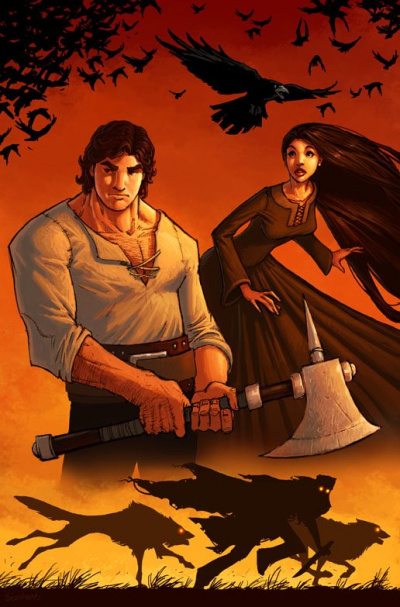On This Day in Randland: Sunday
Author: Atarah al'Norahn
Published: June 26 2019 Tar Valon Times Blog Link
This article contains spoilers for the entire series.
Occurring midway through Amadaine, although not officially considered one of the twenty-eight days of that month, the festival of Sunday corresponds to our own June solstice.[1] Mentioned more frequently in the books than any other holiday except Bel Tine, we as readers have a wealth of information on the importance that this holiday holds within the Westlands. Although the vast majority of these references are by characters from the Two Rivers, the glossary to The Dragon Reborn states that Sunday is “widely celebrated in many parts of the world.”
Observing the longest day of the year, on Sunday communities gather for celebration and feasting. It is one of the few times of the year when Tuatha’an caravans meet in groups larger than three (KoD, Ch. 12). In the Two Rivers, merriment abounds: people dance, give gifts, decorate carts, and participate in competitions of speed, strength, and archery. If the Village Council is able to arrange for it, a gleeman and fireworks can occasionally be a special part of the festivities. It is a day that also provides ample opportunity for other, less officially sanctioned shenanigans: in the words of one Matrim Cauthon, there is little as fun as “stealing applecakes at Sunday” (TDR, Ch. 46).
As much as it is a day of public celebration, Sunday can also be a day of personal remembrance. It is a day on which Rand routinely leaves flowers at his mother’s grave (TEoTW, Ch. 1), and this type of remembrance appears to be common; while telling stories to a crowded common room in Cairhien, Thom finishes a tale of Rogosh Eagle-eye and Dunsinin by describing how Dunsinin lays “a single rose, one crystal teardrop like dew upon petals” upon Rogosh’s grave every Sunday in remembrance (TGH, Ch. 25).

Seamus Gallagher, The Eye of the World Graphic Novel, Volume 1
References to Sunday in the books are linked to memory in other ways as well. Especially in the early books, thoughts of Sunday are linked to feelings of nostalgia and homesickness for the Two Rivers characters. On several occasions, Egwene especially feels sadness at missing the celebrations in Emond’s Field, and she hopes to share in them again. One particularly poignant moment occurs when Egwene and Perrin are hiding from the Whitecloaks in The Eye of the World. Concealed within the massive stone hand of Artur Hawkwing’s statue, Egwene suddenly asks Perrin: “Will you dance with me at Sunday? If we’re home by then?” (TEoTW, Ch. 30). He promises that he will, and hopes, through the terror, that they will survive. It is a moment that Perrin later recalls in The Towers of Midnight when he is on trial for killing two Whitecloaks that night long ago. As Bornhald recites his own version of the story, Perrin recalls pain, and shouting, and Egwene’s voice in the dark as she speaks of home.
While Sunday holds great importance as an annually reoccurring festival, there are a number of particular Sundays on which important events have occurred. Yurian Stonebow is said to have proclaimed himself the Dragon Reborn on a Sunday around the end of the Trolloc Wars, and to have been captured on a Sunday some few years later (Companion). Much more recently, it is in 994 NE that Hurin gains his talent and becomes a sniffer (TGH, Ch. 9).
As one final point of interest, Sunday in the year 998 NE appears to have fallen early in The Great Hunt, approximately around the time the Two Rivers characters depart Fal Dara. Although the exact date is not directly mentioned in relation to the timeline of the book, we can approximate it through other references. It is around this time that the Feast of Teven occurs, an Illianer festival that also takes place in the month of Amadaine. In this particular year, the Feast of Teven is known to have “coincided with the calling of the Hunt for the Horn” (Companion), an event that Bayle Domon is in Illian to witness (TGH, Ch. 10) and which occurs roughly around the departure from Fal Dara. There is something poetic, in a way, about watching Rand, Mat, Perrin, Egwene, and Nynaeve begin to set off on separate journeys so near to a holiday they are accustomed to spending together. These journeys will take them far from home, and while they will experience many wonderful things, some of them will never return to Emond’s Field.
Footnotes:
- [1] In the calendar observed in the Westlands, Amadaine is the seventh of thirteen months. For more information on calendars and dating systems in The Wheel of Time, see The Wheel of Time Companion and The World of Robert Jordan’s “The Wheel of Time." For more on how the days of these calendars correspond to our own world, see the article on the Farede Calendar in TarValon.Net’s Library.